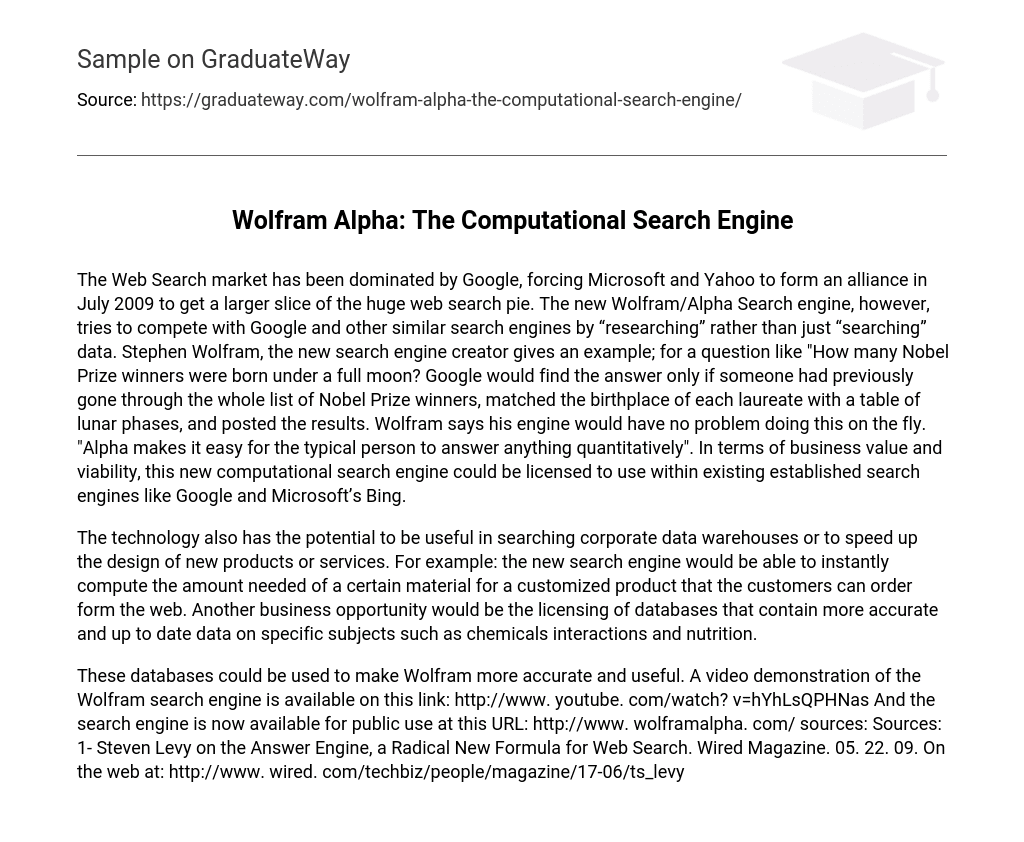The Web Search market has been dominated by Google, forcing Microsoft and Yahoo to form an alliance in July 2009 to get a larger slice of the huge web search pie. The new Wolfram/Alpha Search engine, however, tries to compete with Google and other similar search engines by “researching” rather than just “searching” data. Stephen Wolfram, the new search engine creator gives an example; for a question like “How many Nobel Prize winners were born under a full moon? Google would find the answer only if someone had previously gone through the whole list of Nobel Prize winners, matched the birthplace of each laureate with a table of lunar phases, and posted the results. Wolfram says his engine would have no problem doing this on the fly. “Alpha makes it easy for the typical person to answer anything quantitatively”. In terms of business value and viability, this new computational search engine could be licensed to use within existing established search engines like Google and Microsoft’s Bing.
The technology also has the potential to be useful in searching corporate data warehouses or to speed up the design of new products or services. For example: the new search engine would be able to instantly compute the amount needed of a certain material for a customized product that the customers can order form the web. Another business opportunity would be the licensing of databases that contain more accurate and up to date data on specific subjects such as chemicals interactions and nutrition.
These databases could be used to make Wolfram more accurate and useful. A video demonstration of the Wolfram search engine is available on this link: http://www. youtube. com/watch? v=hYhLsQPHNas And the search engine is now available for public use at this URL: http://www. wolframalpha. com/ sources: Sources: 1- Steven Levy on the Answer Engine, a Radical New Formula for Web Search. Wired Magazine. 05. 22. 09. On the web at: http://www. wired. com/techbiz/people/magazine/17-06/ts_levy





